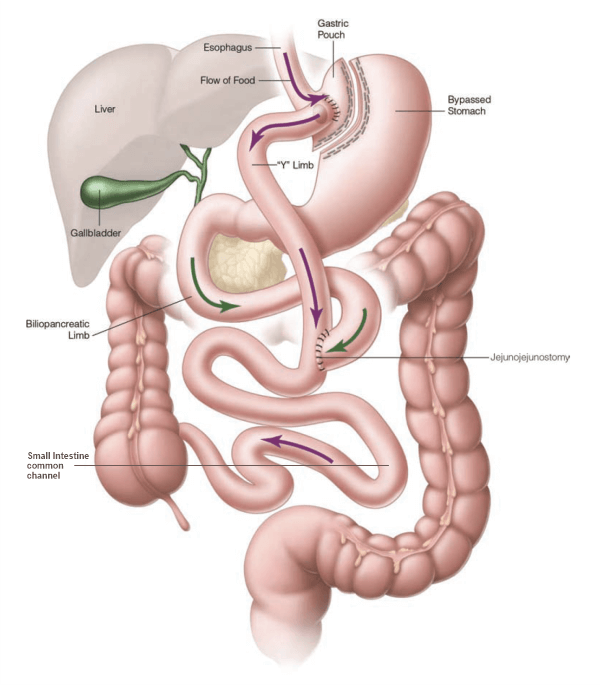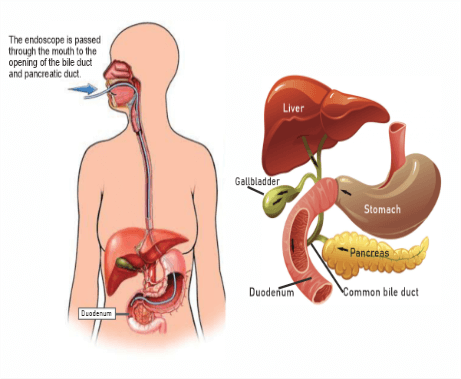What is the full form of ERCP in MedicalERCP: Endoscopic Retrograde CholangiopancreatographyERCP stands for endoscopic retrograde cholangiopancreatography. This medical examination known as endoscopic retrograde cholangiopancreatography makes use of an endoscope and X-rays. 
An endoscope is an illuminated flexible tube with an in-built camera. This endoscope is also known as a scope and is about the thickness of your index finger. It passes through the mouth and into the stomach and the first section of the small intestine, known as the duodenum. The doctor then inserts a very small, flexible plastic tube through the scope and injects a dye that is visible through X-rays. The liver, pancreas, gallbladder, and bile ducts are all examined and treated through ERCP by gastroenterologists, and medical professionals who are specialized in gastrointestinal medical diseases. When to perform ERCP?ERCP is used by doctors to evaluate and treat problems in the pancreatic and bile ducts. ERCP may be performed when the doctor suspects pancreas or liver disease, or a problem with the bile ducts. Individuals may also need ERCP to determine the cause of abnormal results of a blood sample, MRI Scan, or Chest X-Ray is used to rectify a problem found during one of these tests. Therefore, ERCP can aid the doctor in determining whether individuals require treatment or not and if so then which kind of treatment is to be followed. Some of the major reasons for performing ERCP are listed below:
Symptoms
How do patients prepare for ERCP operation?The patient should read the pre-procedure instructions provided by the doctor carefully. Patients before undergoing an ERCP operation should do the following:
Procedure for ERCP
What should be done after ERCP?The endoscopic operation may cause throat itchiness. Individuals might be prescribed to consume liquid foods for 1-2 days till the pain goes away. Just after an ERCP, individuals may experience digestive issues because of swollen sensations caused by the pumped-in air and dizziness which can be an anaesthesia side effect. With the doctor's approval, individuals should be able to return to work and perform normal activities. Risks or complications of having an ERCPSome individuals are allergic to the dye used during the X-ray procedure. In such cases, the doctor will prescribe medication to prevent the reaction as soon as possible. Other uncommon but life-threatening complications include:
Next TopicFull Form
|
 For Videos Join Our Youtube Channel: Join Now
For Videos Join Our Youtube Channel: Join Now
Feedback
- Send your Feedback to [email protected]
Help Others, Please Share










